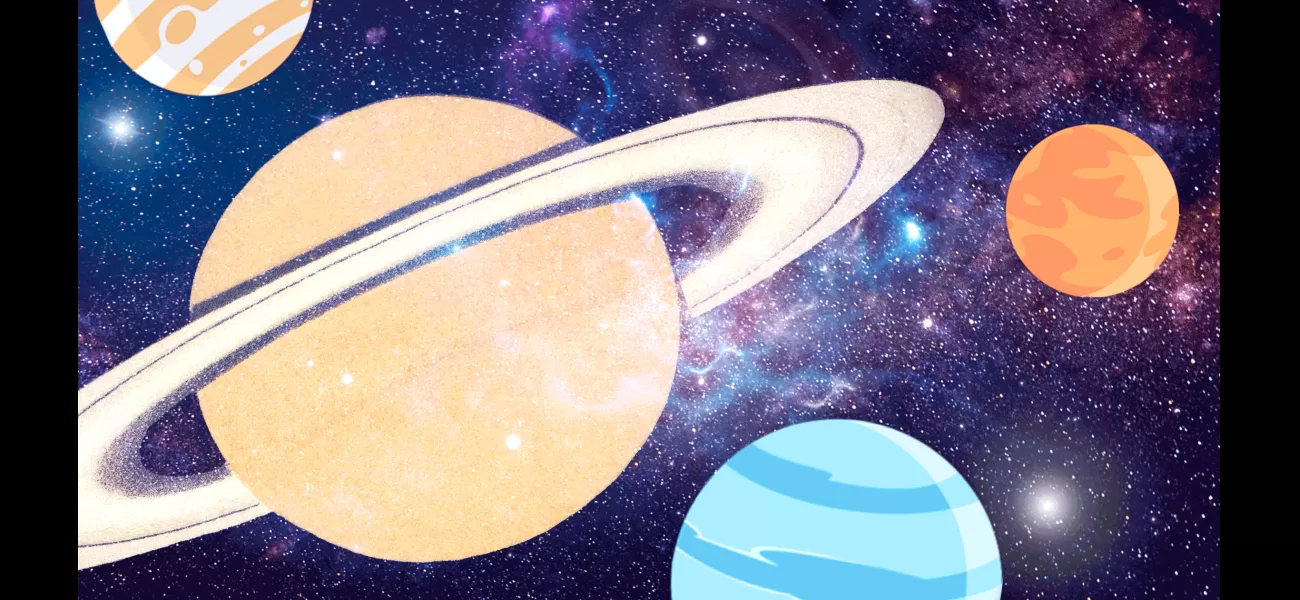Seven possible explanations for why aliens have not yet made contact, ranging from depressing to downright terrifying.
We're really not very patient right now.
May 26th 2024.

As we continue our search, the question remains: where are they? To be honest, we're getting a little impatient. Where are all the aliens? Surely, with the vastness of the universe, there must be other intelligent life forms out there. But it seems like they're nowhere to be found.
Of course, we're not just looking on Earth. We're searching far and wide, across the 200 billion galaxies and 100 billion stars in each one. And with only 1% of those stars potentially having a planet suitable for life, that still leaves us with a whopping 200 quintillion possibilities for new Earths. But even with those odds, we have yet to receive a single "hello" from any other civilization.
We can't help but wonder, what could alien life look like? Maybe they're not all intelligent beings like us. Maybe they're just microbes, crustaceans, or even aliens with ears that allow them to fly like Dumbo. The possibilities are endless.
But among all those planets, stars, and galaxies, there has to be some other form of intelligent life. The Drake equation, proposed by radio astronomer Frank Drake in 1961, calculates the likelihood of communicating civilizations based on various factors. And according to this equation, the chances of us being the only intelligent life in the universe are incredibly slim.
However, this isn't a new conundrum. It's been around for decades, known as the Fermi paradox. In 1950, Nobel Prize-winning physicist Enrico Fermi famously asked "Where is everybody?" during a discussion about flying saucers with his colleagues. And we can't help but ask the same question.
But maybe there are valid reasons for why we haven't found anyone yet. The Great Filter theory suggests that there are numerous hurdles for intelligent life to overcome in order to reach a point where we could detect them. It's possible that these hurdles are just too difficult for any other civilization to surpass, making it highly improbable for us to come into contact with them.
Think about it. Our own journey as a species has been full of challenges. From the ocean to the land, from evolution to extinction, and finally to developing societies and the technology to search for other civilizations. It's a long and complicated process, and it's possible that other civilizations have faced similar obstacles that have prevented them from reaching the same point as us.
But it's not just about reaching a certain level of intelligence. The "Gaian bottleneck" hypothesis suggests that even creating the right conditions for basic forms of life is incredibly difficult. And if we can't even sustain life on other planets like Mars or Venus, then it's possible that Earth is a rare and precious exception.
And maybe, just maybe, other civilizations have already passed us by. Astrophysicist Amri Wande proposed that there could be so many advanced civilizations out there that they simply have no reason to visit us. Maybe we're just not intelligent enough for them to bother with.
It's a humbling thought, but it's also a reminder that we still have so much to learn about our own planet and the universe. With each new discovery, we inch closer to understanding our place in the cosmos. And who knows, maybe one day we'll receive a "hello" from another intelligent civilization out there. Until then, we'll keep searching and wondering.
We've been searching for extraterrestrial life for so long, but where is it? To be completely honest, we've grown tired of waiting. Where are they? Where in the vast expanse of the universe are all the aliens hiding? Well, one thing is for sure, they're definitely not on Earth, or anywhere close by. That's the whole point, isn't it?
According to conservative estimates, there are approximately 200 billion galaxies in the universe. Let's say each galaxy has around 100 billion stars. Even if just 1% of those stars have a single planet orbiting around them, that still leaves us with a mind-boggling 200 quintillion potential new Earths out there. And if we consider that there's a one in a trillion chance of a planet having the perfect combination of water, temperature, and chemicals for life to thrive, there should be life on at least a few hundred thousand planets. So why haven't we heard from any of them yet? Surely, out of all those possibilities, at least one of them would have reached out to us by now.
It's impossible to say what form alien life could take. There's no telling what kind of creatures may be out there. We do know that not all of those planets would be home to intelligent life. In fact, we have no idea what kind of life they could support. It could be anything from tiny microbes to giant space dinosaurs. But among all those planets, stars, and galaxies, there has to be some other form of intelligent life. It's simply inconceivable that we are alone in this vast universe.
This brings us to the Drake equation, which is a simplified version of the second-most famous formula in science, E=MC2. Proposed by radio astronomer Frank Drake in 1961, it calculates the likelihood of intelligent, communicating civilizations based on factors such as the number of planets, chances of life arising, and the probability of that life being advanced. As you can see, it's quite a complex equation, which is why we decided to come up with our own simplified version.
This is not a new dilemma. In fact, it has a name - the Fermi paradox. In 1950, Nobel Prize-winning physicist Enrico Fermi and his colleagues were discussing flying saucers over lunch when he posed the question, "Where is everybody?" Well, we have to admit, we're just as puzzled and decided to ask some experts why we haven't found anyone - or been found - yet.
One possible explanation could be that alien life and intelligent alien life are two different things. Just because a planet is capable of supporting life, doesn't mean that it will actually form there. And even if it does, it's highly unlikely that it will overcome all the obstacles to reach the same level of advancement as us or even surpass us.
This leads us to the Great Filter theory, which suggests that there are so many hurdles for intelligent life to overcome that it is highly improbable for them to reach the same point as us, or even further. Think about it, we started as simple life forms in the ocean, crawled out, evolved, and faced multiple extinction events before reaching where we are now. It's not an easy feat, and it's possible that other civilizations may not have been able to overcome all these challenges.
Another theory, known as the 'Gaian bottleneck' hypothesis, considers the difficulty of creating the right conditions for even the most basic forms of life, let alone reaching our level of advancement. Earth has had liquid water on its surface for billions of years, and that's a long time for conditions to remain suitable for life. Other planets like Venus and Mars may have also had habitable conditions in the past, but something went wrong, and they became uninhabitable. This leads us to the idea that creating life may not be that difficult, but sustaining it is a whole different challenge.
Perhaps the reason we haven't found any other intelligent life in the universe is that we're just not worth bothering with. Astrophysicist Amri Wande suggests that there could be countless advanced civilizations out there, but they don't see us as intelligent enough to be worth their time. It's a bit of a harsh thought, but it's certainly a possibility.
In the end, we may never know for sure why we haven't found any other intelligent life in the universe. But one thing is for sure, the fact that we exist and have reached such a level of advancement in a seemingly endless universe is a remarkable and awe-inspiring feat.
Of course, we're not just looking on Earth. We're searching far and wide, across the 200 billion galaxies and 100 billion stars in each one. And with only 1% of those stars potentially having a planet suitable for life, that still leaves us with a whopping 200 quintillion possibilities for new Earths. But even with those odds, we have yet to receive a single "hello" from any other civilization.
We can't help but wonder, what could alien life look like? Maybe they're not all intelligent beings like us. Maybe they're just microbes, crustaceans, or even aliens with ears that allow them to fly like Dumbo. The possibilities are endless.
But among all those planets, stars, and galaxies, there has to be some other form of intelligent life. The Drake equation, proposed by radio astronomer Frank Drake in 1961, calculates the likelihood of communicating civilizations based on various factors. And according to this equation, the chances of us being the only intelligent life in the universe are incredibly slim.
However, this isn't a new conundrum. It's been around for decades, known as the Fermi paradox. In 1950, Nobel Prize-winning physicist Enrico Fermi famously asked "Where is everybody?" during a discussion about flying saucers with his colleagues. And we can't help but ask the same question.
But maybe there are valid reasons for why we haven't found anyone yet. The Great Filter theory suggests that there are numerous hurdles for intelligent life to overcome in order to reach a point where we could detect them. It's possible that these hurdles are just too difficult for any other civilization to surpass, making it highly improbable for us to come into contact with them.
Think about it. Our own journey as a species has been full of challenges. From the ocean to the land, from evolution to extinction, and finally to developing societies and the technology to search for other civilizations. It's a long and complicated process, and it's possible that other civilizations have faced similar obstacles that have prevented them from reaching the same point as us.
But it's not just about reaching a certain level of intelligence. The "Gaian bottleneck" hypothesis suggests that even creating the right conditions for basic forms of life is incredibly difficult. And if we can't even sustain life on other planets like Mars or Venus, then it's possible that Earth is a rare and precious exception.
And maybe, just maybe, other civilizations have already passed us by. Astrophysicist Amri Wande proposed that there could be so many advanced civilizations out there that they simply have no reason to visit us. Maybe we're just not intelligent enough for them to bother with.
It's a humbling thought, but it's also a reminder that we still have so much to learn about our own planet and the universe. With each new discovery, we inch closer to understanding our place in the cosmos. And who knows, maybe one day we'll receive a "hello" from another intelligent civilization out there. Until then, we'll keep searching and wondering.
We've been searching for extraterrestrial life for so long, but where is it? To be completely honest, we've grown tired of waiting. Where are they? Where in the vast expanse of the universe are all the aliens hiding? Well, one thing is for sure, they're definitely not on Earth, or anywhere close by. That's the whole point, isn't it?
According to conservative estimates, there are approximately 200 billion galaxies in the universe. Let's say each galaxy has around 100 billion stars. Even if just 1% of those stars have a single planet orbiting around them, that still leaves us with a mind-boggling 200 quintillion potential new Earths out there. And if we consider that there's a one in a trillion chance of a planet having the perfect combination of water, temperature, and chemicals for life to thrive, there should be life on at least a few hundred thousand planets. So why haven't we heard from any of them yet? Surely, out of all those possibilities, at least one of them would have reached out to us by now.
It's impossible to say what form alien life could take. There's no telling what kind of creatures may be out there. We do know that not all of those planets would be home to intelligent life. In fact, we have no idea what kind of life they could support. It could be anything from tiny microbes to giant space dinosaurs. But among all those planets, stars, and galaxies, there has to be some other form of intelligent life. It's simply inconceivable that we are alone in this vast universe.
This brings us to the Drake equation, which is a simplified version of the second-most famous formula in science, E=MC2. Proposed by radio astronomer Frank Drake in 1961, it calculates the likelihood of intelligent, communicating civilizations based on factors such as the number of planets, chances of life arising, and the probability of that life being advanced. As you can see, it's quite a complex equation, which is why we decided to come up with our own simplified version.
This is not a new dilemma. In fact, it has a name - the Fermi paradox. In 1950, Nobel Prize-winning physicist Enrico Fermi and his colleagues were discussing flying saucers over lunch when he posed the question, "Where is everybody?" Well, we have to admit, we're just as puzzled and decided to ask some experts why we haven't found anyone - or been found - yet.
One possible explanation could be that alien life and intelligent alien life are two different things. Just because a planet is capable of supporting life, doesn't mean that it will actually form there. And even if it does, it's highly unlikely that it will overcome all the obstacles to reach the same level of advancement as us or even surpass us.
This leads us to the Great Filter theory, which suggests that there are so many hurdles for intelligent life to overcome that it is highly improbable for them to reach the same point as us, or even further. Think about it, we started as simple life forms in the ocean, crawled out, evolved, and faced multiple extinction events before reaching where we are now. It's not an easy feat, and it's possible that other civilizations may not have been able to overcome all these challenges.
Another theory, known as the 'Gaian bottleneck' hypothesis, considers the difficulty of creating the right conditions for even the most basic forms of life, let alone reaching our level of advancement. Earth has had liquid water on its surface for billions of years, and that's a long time for conditions to remain suitable for life. Other planets like Venus and Mars may have also had habitable conditions in the past, but something went wrong, and they became uninhabitable. This leads us to the idea that creating life may not be that difficult, but sustaining it is a whole different challenge.
Perhaps the reason we haven't found any other intelligent life in the universe is that we're just not worth bothering with. Astrophysicist Amri Wande suggests that there could be countless advanced civilizations out there, but they don't see us as intelligent enough to be worth their time. It's a bit of a harsh thought, but it's certainly a possibility.
In the end, we may never know for sure why we haven't found any other intelligent life in the universe. But one thing is for sure, the fact that we exist and have reached such a level of advancement in a seemingly endless universe is a remarkable and awe-inspiring feat.
[This article has been trending online recently and has been generated with AI. Your feed is customized.]
[Generative AI is experimental.]
0
0
Submit Comment





